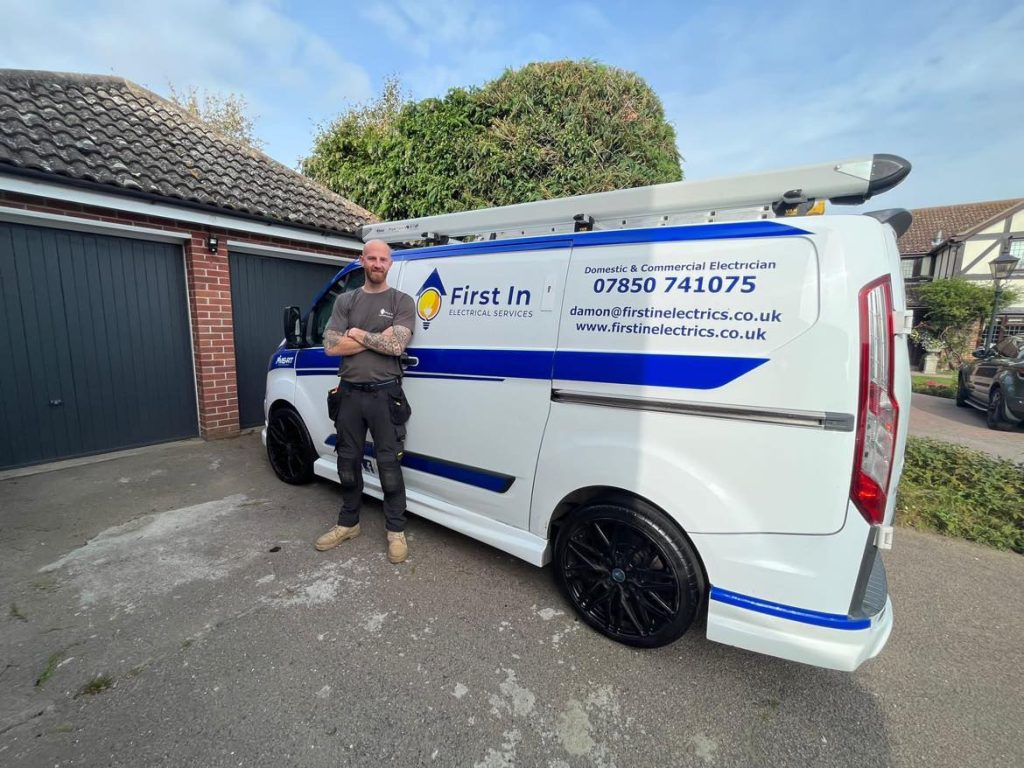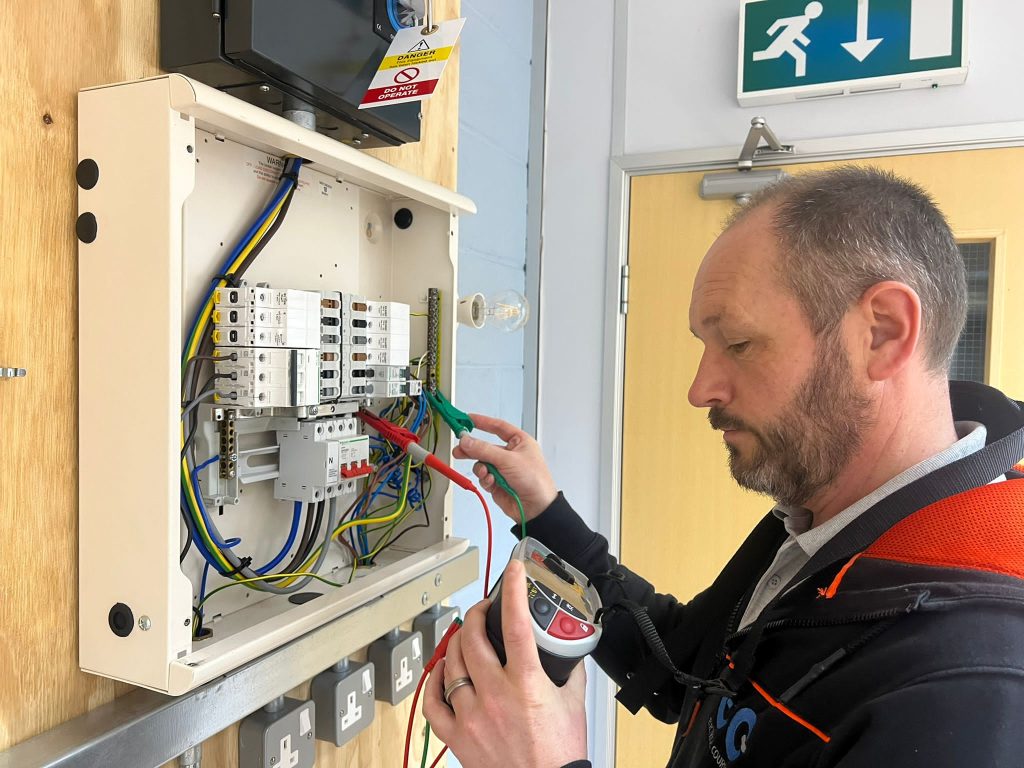
-
By Neil
What Courses do you need to become an electrician?
Table of contents
Introduction
At Electrical Courses Ltd we often get asked this question, which you’d think would be simple enough to find out on the internet, but let’s be honest, the world of electrical qualifications is a bit of a minefield! So, the purpose of this blog is to explain the electrical courses or qualifications to become a qualified Electrician and how to achieve them, as unbiased as I possibly can ;).
The qualification routes
There are a number of routes an aspiring electrician can take to get qualified as an electrician, but they all should have the same outcome and that is to achieve a Level 3 NVQ in Electrical Installations plus the AM2 Assessment. The routes can be simplified as:
- The Electrical Apprenticeship
- The Electrical Improver
- The Electrical Experienced Worker
The qualification awarding bodies
There are two main qualification bodies that award the qualifications to become a qualified Electrician and they are City & Guilds (C&G) and EAL. C&G are the most well-known awarding body in the Electrical Industry but either body will get the same outcome in the end. Electrical Courses Ltd are an Approved City & Guilds training centre, so whilst there are EAL equivalents I will only be mentioning the C&G relative Electrician qualifications.

The Electrical Apprenticeship
This is the more traditional route and up until the 1990s was probably the only route to becoming a qualified electrician. If you know of any real old school electricians or even apprentices, they will always tell you that is the proper route, but lets be fair an Apprenticeship whilst having its advantages doesn’t suit everyone. However if you are a school leaver or under the age of 19, this is definitely the best route for yourself.
What are the qualifications and assessments taken?
There is only one qualification required and whether it is with C&G or EAL the name of the qualification is the Level 3 NVQ Electrotech Apprenticeship qualification (5357). Apprentices will also need to complete the AM2S assessment at the end of their apprenticeship. Once these are completed, this will also allow them to apply for the JIB ECS Gold Card for Electricians.
How to start out as an Electrical Apprentice
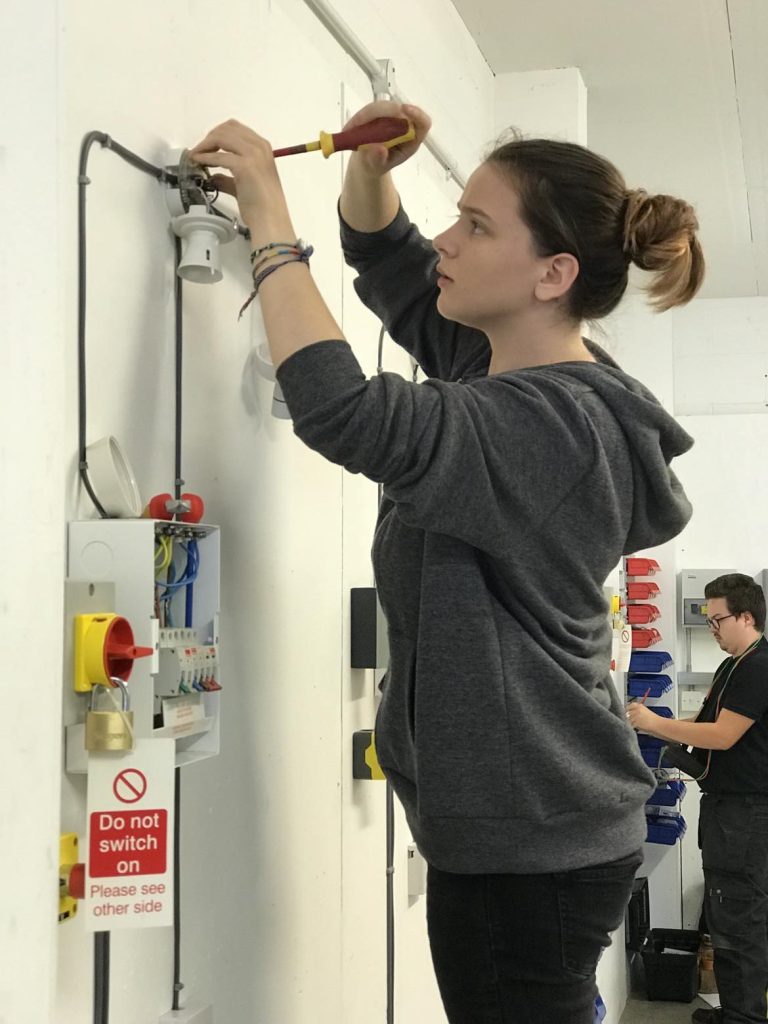
The first step to an Electrical Apprenticeship for an aspiring electrician is to gain employment as an Electrical Apprentice within an Electrical Contracting firm or a company that employs Electricians. The 2nd step is for the employer of the Apprentice to then enrol the Apprentice on to the Level 3 NVQ Electrotech Apprenticeship qualification (5357). Once the Apprentice has completed their NVQ, the final step is to start their 3 day AM2S assessment and this will be arranged by their College Assessor.
Are there any requirements?
Yes, the candidate has to have a Grade 4 GCSE or equivalent in Maths and English. Depending on the candidate’s qualifications an Apprentice may also have to study extra qualifications to meet the college’s criteria such as English, Maths and IT.
Who is an Apprenticeship best suited to?
An Apprenticeship is best suited to people aged 16-19 because they will be fully funded through out their training, learn at a slower pace and have less financial commitments compared to an older trainee. There is partial funding for up to 24-year-olds. For people above 24 years of age, they may be eligible to apply for an Advanced Learner loan with the government.
What’s a typical wage of an Apprentice?
According to the JIB handbook stage 1 (first year) Apprentices can be paid £5.59 an hour and Stage 4 (4th Year) apprentices can earn £12.15 an hour. This wage will be less on days the Apprentice is at college studying and these rates are just a guideline. This information was taken from the JIB Handbook on 23rd November 2023.
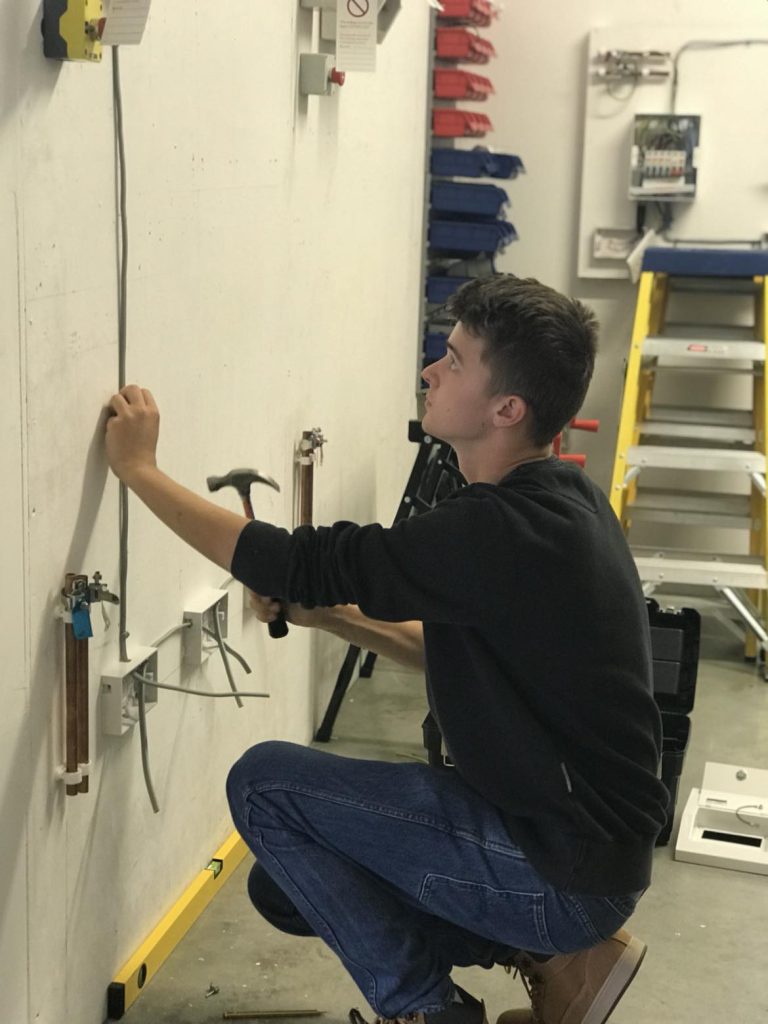
What is the duration of this training?
A typical Electrical Apprenticeship can take a minimum of 4 years. The structure is typically 1 day a week at college, 4 days a week on site with their employer for the first three years and then the final year is full time on site with their employer.
What are the advantages?
The biggest advantage for an Electrical Apprentice is that they will learn their trade whilst on the job and this experience is invaluable and cannot be replicated in a college or training provider’s workshop. Another advantage is that Apprentices under 19 years of age will have their training fully funded by the government.
What are the disadvantages?
The wage is probably the biggest disadvantage for an Electrical Apprentice. Whilst this may not affect a 16 to 19-year-old Apprentice, older trainees may not be able to survive on an Apprentice wage because of financial commitments such as families and mortgages. Another disadvantage is the duration, 4 years of earning apprenticeship wages may not be sustainable for all adult trainees.
How can I find out more information about Electrical Apprenticeships?
It is best to contact your local FE College and ask to speak to an Electrical Apprenticeship team or check out their website. Here are some FE Colleges that may be of interest:
- Bedford College
- Peterborough College
- Cambridge Regional College (camre.ac.uk)
- JTL Electrical Engineering Apprenticeships
- Gower College Swansea
- Newcastle College
- New City College
As a young person (16-19), what other options do I have for college, if I cannot obtain an Electrical Apprenticeship?
Contact your local FE College and enquire about a full time course such as the level 1 Diploma in Electrical Installations or Building Services. Funding will be available, and it could increase your chances of obtaining an apprenticeship later on or open up other qualifications to progress onto later such as the level 2 Technical Certificate in Electrical installations (8202).
The Electrical Improver

Before I start this section of the blog I will apologise for any biased opinions, our training centre do after all specialise in the Electrical Improver route and it is the reason why I started this training company back in 2013. I wanted to offer adults a better suited route to becoming a qualified electrician.
Up until approximately the 1990s most people would start a career and very rarely change to another, but nowadays we have much more flexibility to chop and change careers as we like. This is where the Electrical Improver route excels!
What are the qualifications and assessments taken?
There are three main qualifications and one assessment required to be achieved in the Electrical Improver route and these are:
- The level 2 Diploma in Electrical Installations (2365)
- The level 3 Diploma in Electrical Installations (2365)
- The level 3 NVQ Portfolio in Electrical Installations (2357-44)
- AM2 assessment
How to start out as an Electrical Improver
Whenever I get asked “what is the best way”, to start off on the Electrical Improver route or to train to become an electrician without completing an Apprenticeship? I always say to jump ship, but only if you are in a financial position to do so, and start your training straight away.
First, a person who wishes to start the Electrical Improver route would contact a training provider that offers the level 2 Diploma in Electrical Installations (2365) or EAL equivalent, this is the entry qualification for the Electrical Improver route. There is no need to do a level 1 qualification, they are only offered by FE Colleges for young full-time learners.
Is it best to gain qualifications first before applying for work?
Our industry is getting stricter all the time especially when it comes to qualifications, which is an excellent move. It is now very difficult for anyone to work as an electrician, without the correct qualifications and training. Unfortunately for some, we now have a situation where some Sparkies who have been in the electrical industry for 20-30 years coming to us for extra training. It is now deemed that they no longer meet the industry qualification criteria of an Electrician and need to complete a level 3 Experienced Worker NVQ. Also another reason to gain qualifications first is that whilst experience is 2nd to none, most employers will not look at you without any sort of qualifications.
Are there any requirements?
It will be down to the training provider, but generally to start the level 2 Electrical course a good understanding of English and Maths is required. For the level 3 Electrical course you are required to hold a level 2 Diploma in Electrical Installations (2365). To enrol onto the level 3 NVQ Portfolio in Electrical Installations (2357-44) you would need to have completed both the level 2 & 3 Diplomas (2365) and be working in a job as an Electrical Improver under the supervision of an electrician.
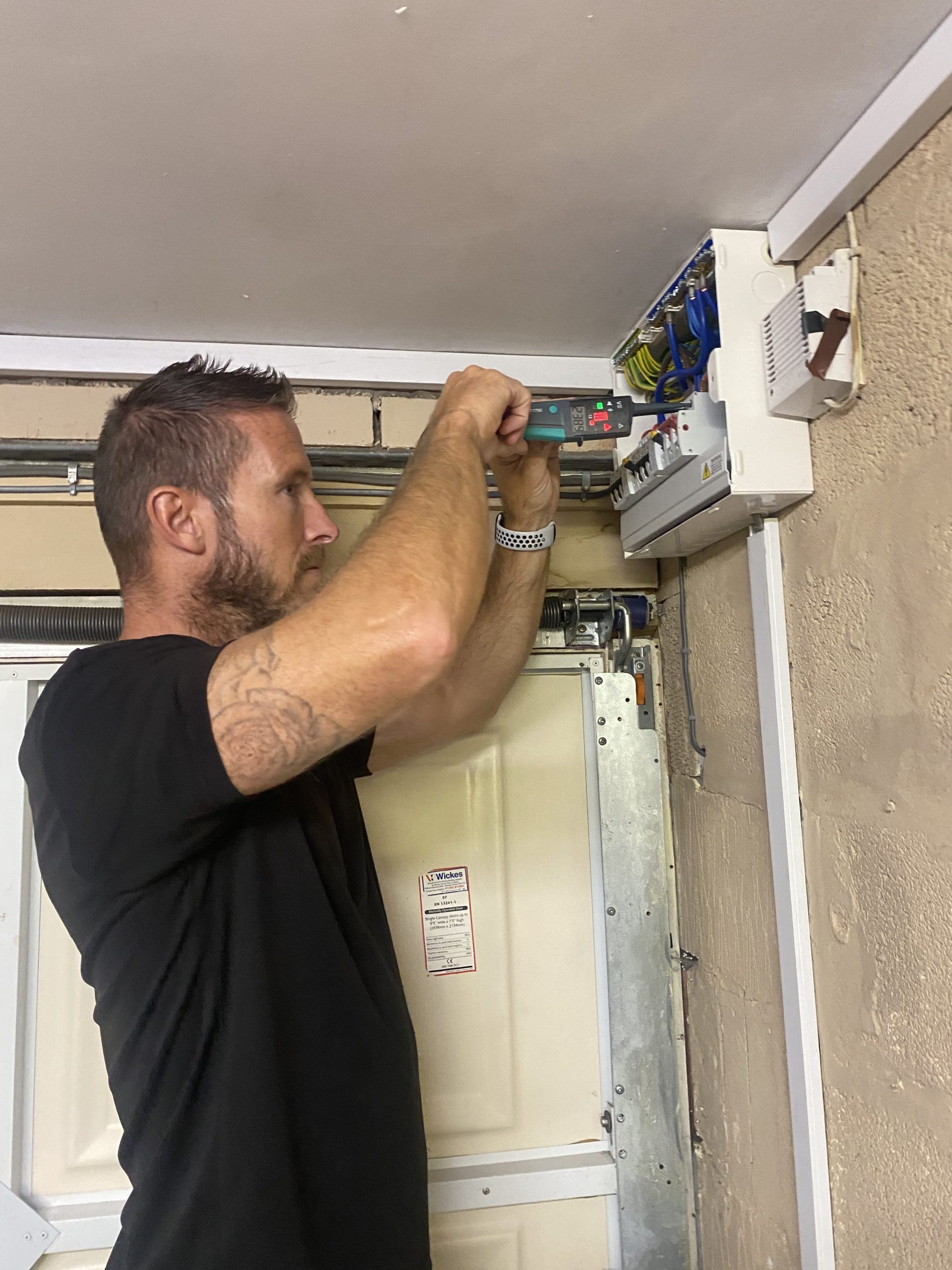
Finally, to start the AM2 Assessment you are required to be enrolled onto the level 3 NVQ Portfolio in Electrical Installations 2357. The AM2 counts as evidence towards one of the units of the 2357 NVQ known as unit 399, so this level 3 NVQ can not be achieved without completing an AM2.
Who is the Electrical Improver route best suited to?
Generally, this route is best suited to anyone above the age of 19 for the following reasons:
- The lack of government funding above the age of 19; adults normally self-fund their training.
- The wages of an electrical improver are much higher than a typical apprentice.
- The duration of training is a lot less. Adult trainees tend to learn at a much quicker pace and can achieve their goal of becoming a qualified electrician quicker than a young apprentice.
- Courses will normally be filled with other likeminded mature adults.
What’s a typical wage of an Electrical Improver?
This will depend a lot on your geographical location, but a good average Electrical Improver wage is about £15 an hour. It is common that some of our past learners earn this or more, just after completing 16 weeks of training on the level 2 & 3 Diplomas in Electrical Installations (2365). There aren’t many industries where you can be training for this short amount of time and earn this type of wage as a trainee.
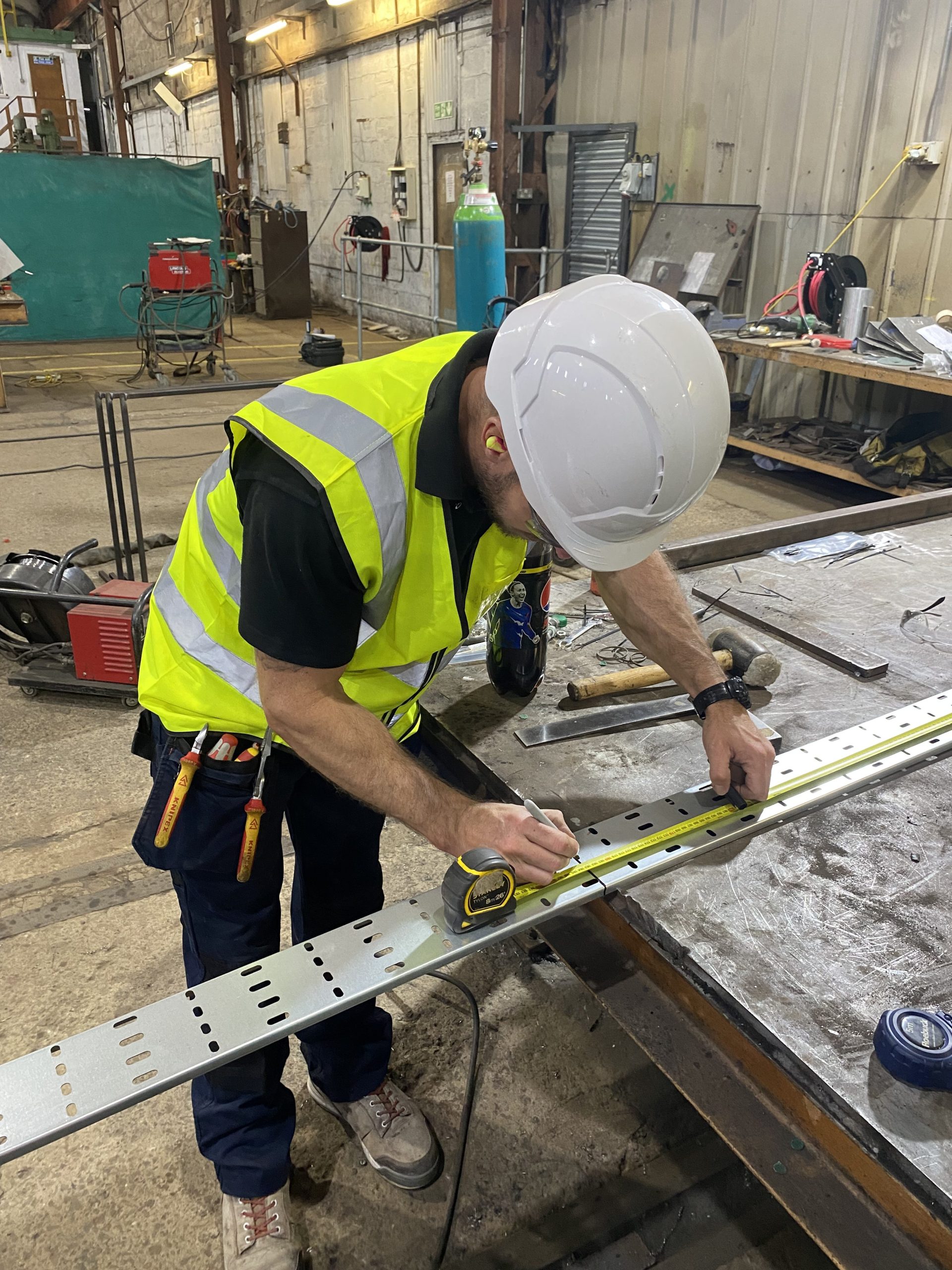
What is the duration of this training?
There will be a number of factors that will affect this such as how you chose to spread out your training. For example, do you need to work to earn money whilst studying? Some trainees might want to transition from another career over to a career as an electrician slowly, so they could train a couple of evenings a week, while continue to work in their current non-electrical related job. This would normally take 3-4 years. Others would like to get the training done as soon as possible in order to start their new career as an electrician.
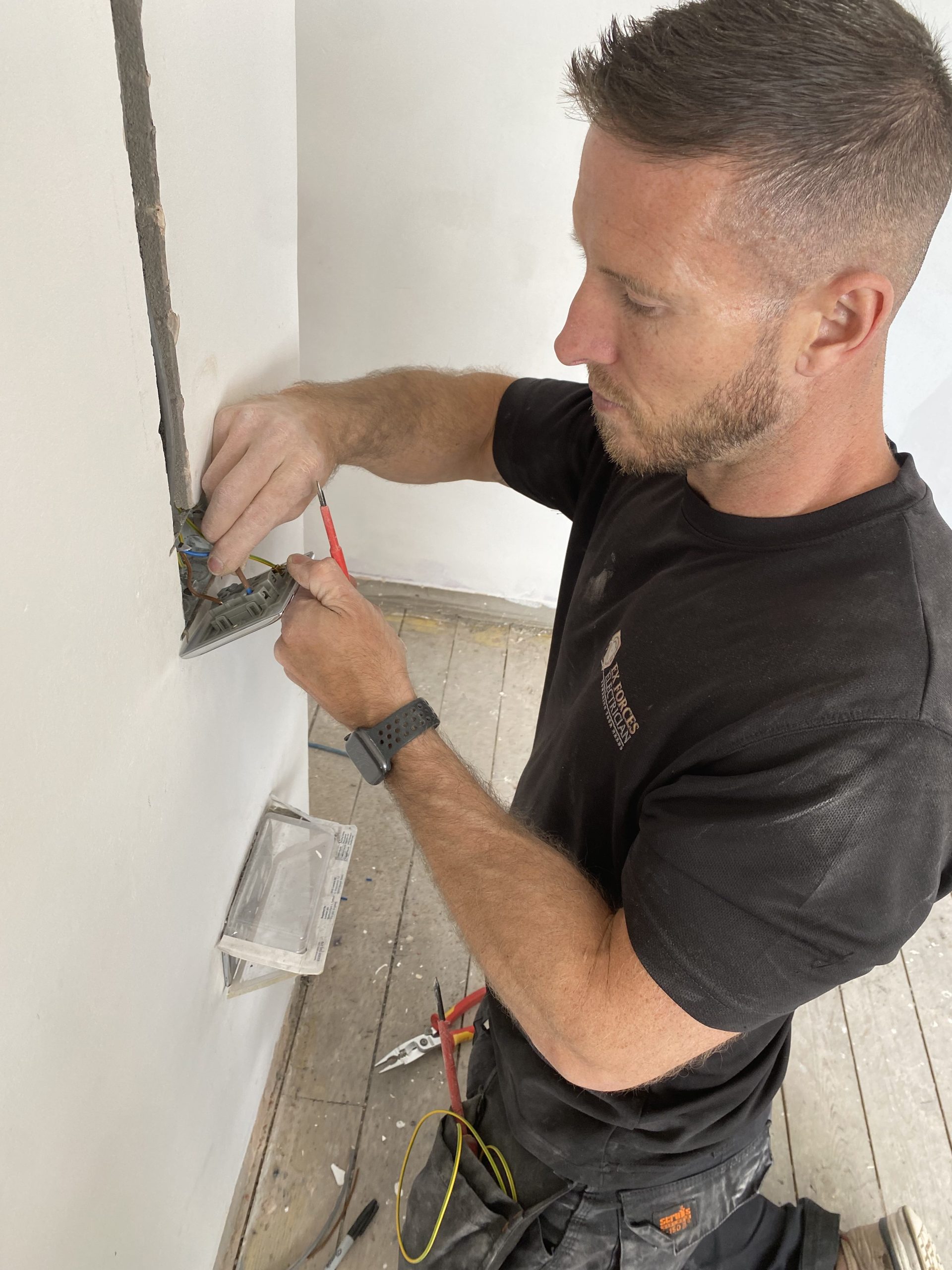
Like I mentioned earlier I would advise to jump ship only if you are financial able to do so, this way a person could be fully trained in less than 2 years. I have seen some remarkable students do the whole lot in a year. As an example, this is a duration of the courses we offer for the electrical Improver route:
- The level 2 Diploma in Electrical Installations (2365) – 8 weeks (5 days a week)
- The level 3 Diploma in Electrical Installations (2365) – 8 weeks (5 days a week)
- The level 3 NVQ Portfolio in Electrical Installations (2357-44) – 6 months to 2 years
- AM2 assessment – 3 days
The duration of the level 2 and level 3 Electrical qualifications will be set by the training provider. They will have recommended guided learning hours set by the qualification awarding body, but the courses could be undertaken full time 5 days a week, 1 day a week, weekends only and possibly even evenings. Obviously to meet the learning hours, the less you study a week will mean the course will last longer. For example, as you can see above, we offer the level 2 course 5 days a week for 8 weeks and a local college offers it 1 day a week for a year.
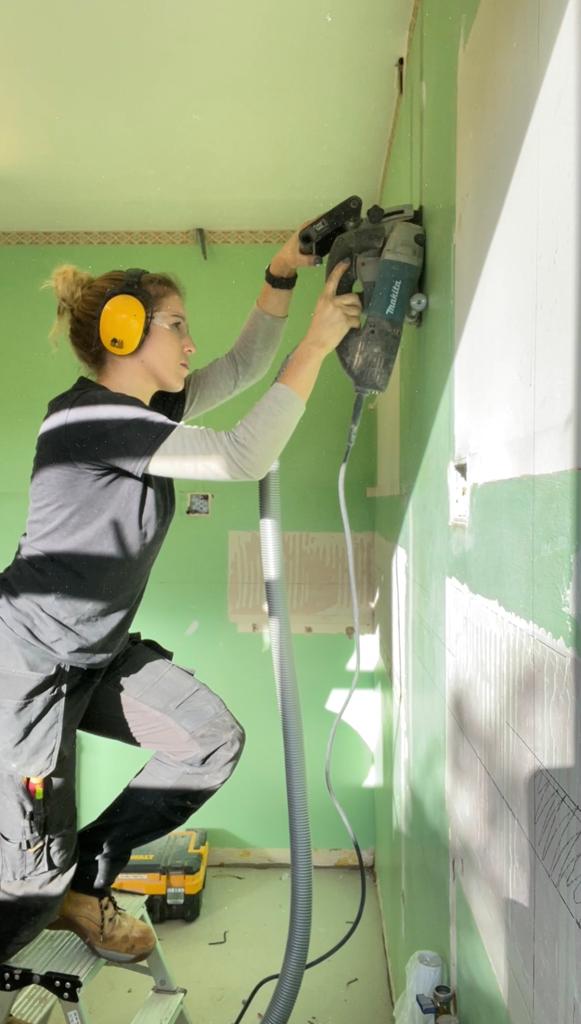
From experience of teaching the different durations for the above-mentioned level 2 & 3 Diplomas, I have seen far more success from the shorter intense courses than the longer drawn-out courses. This is generally because all the training is fresh in the Improvers minds, not just to help pass the exams but also to start employment as soon as possible, there is also no need to refresh subjects on a weekly basis. When I did teach the 2-year courses 1 day a week or evening courses to electrical improvers I noticed a huge lack of attendance, big drop offs of candidates in the 2nd year and a lack of confidence because they had forgotten practical skills from year 1. This would lead to many of them not wanting to leave their current jobs and take that jump into the electrical industry.
Why does the Level 3 Electrical NVQ take between 6 to 24 months?
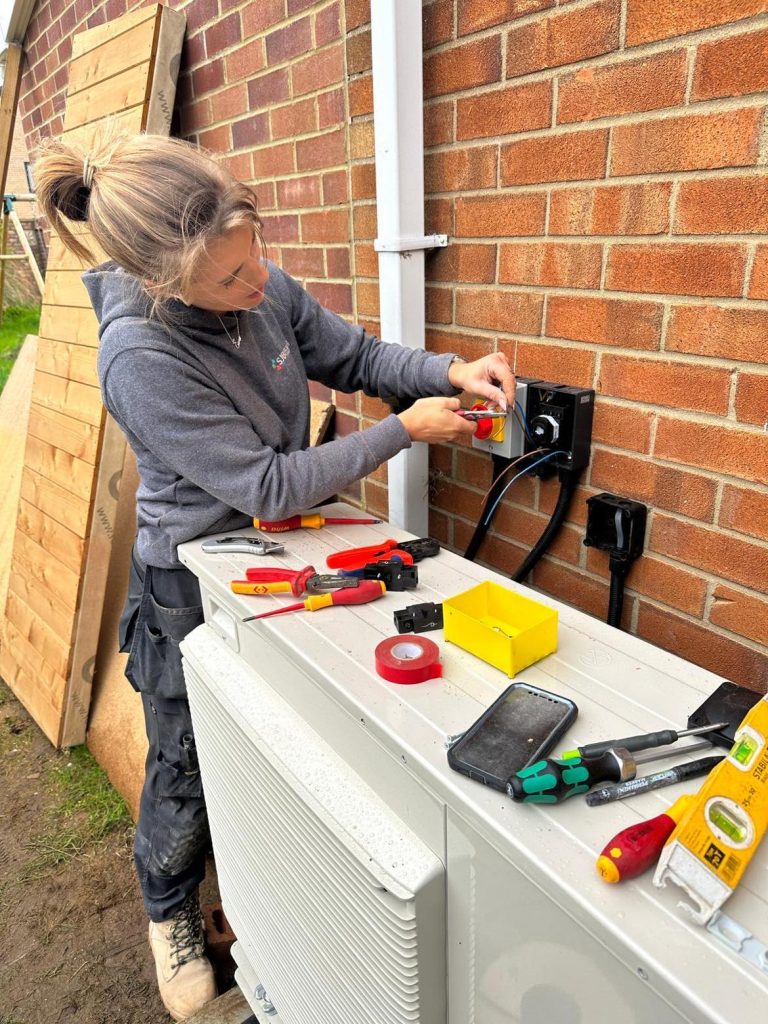
This qualification is a work-based portfolio building NVQ and Electrical trainees will complete this in their own time and not at a training centre. This is generally done after work in the evenings and this is normally the major player in the speed an Improver will complete their portfolio. As you can imagine some trainees will have plenty of time on their hands, whilst others may have children or other commitments. Motivation is also another factor, some trainees may just be very motivated to completing their Electrical NVQ than others.
What are the advantages?
The main advantages are that the duration of the training is a lot less so you could be fully qualified in less than 2 years whilst an Apprenticeship will take 4 years. The wages are a lot better and you will be in a class with likeminded self funded adults.
What are the disadvantages?
The main disadvantage is finance. The courses are normally self funded because there is little funding available for those that chose this route over an Apprenticeship. Income can also be another problem, if you are training full time, you will have to look at working weekends or evenings or be supported by family members.
How can I find out more information?
Have a look at our webpage Electrician Courses – Electrical Courses (electricalcoursesuk.co.uk) for more information on the electrician courses involved in the electrical improver route.
The Electrical Experienced Worker

This is the newest of the three routes and was brought into our industry mainly because of the amount of people working as electricians but did not hold a formal level 3 NVQ in Electrical Installations. This was because ten to fifteen years ago there was an issue where qualifications were not being regulated enough and there was no mandatory or recognised benchmark qualification that people working as an electrician had to meet. Now in the recent years there has been a welcomed shift in the industry to regulating the qualifications and the competent person schemes such as NICEIC and NAPIT have jumped on board with the likes of the NET and JIB (ECS), to ensure that our industry has a proper benchmark for the someone to hold the status of qualified Electrician.
What are the qualifications and assessments taken?
The City and Guilds qualification for this route is called the Level 3 Electrotechnical Experienced worker NVQ (2346) and once this is complete you will have to complete the AM2E Assessment.
How to start out as an Electrical Experienced Worker
This is for experienced trainees only and a candidate will need to enrol onto the Level 3 Electrotechnical Experienced worker NVQ (2346). The training centre will have to carryout a few checks to ensure a candidate is eligible which will include an interview between an assessor and the candidate. There will also be two forms required to be completed by the candidate prior to the interview; the Candidate Background form and Skills Scan checklist.
Are there any requirements?
Yes, to enrol on the Experienced Worker NVQ (2346) a candidate will need to meet the following entry requirements:
- Must hold a minimum of level 2 Certificate or Diploma in Electrical Installations e.g Level 2 2330 or 2365
- 5 Years proven experience in the electrical industry (not including any training)
- A minimum of a Level 2 or Level 3 Electrical Installations Certificate (236,2330,2365)
- Technical knowledge equivalent to Level 3 of Electrical installations
- Level 3 18th Edition BS7671 Regulations qualification (This can be completed whist you are doing the NVQ)
- Level 3 2391-52 Inspection and testing qualification (This can be completed whist you are doing the NVQ)
Who is the Experienced Worker route best suited to?
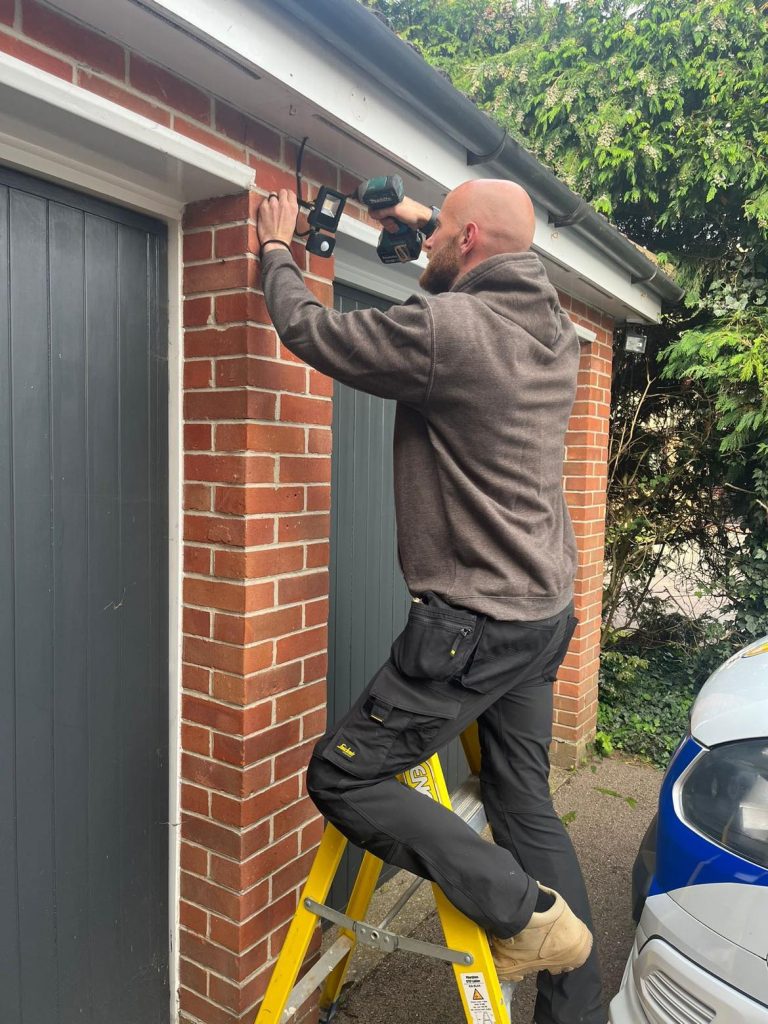
Anyone who has been working in an Electrical Installations role, has the equivalent underpinning knowledge of a level 3 Electrical Installations qualification but do not hold an NVQ level 3 and has over 5 years of experience.
What’s a typical wage of an Electrical Experienced Worker?
This can range from a minimum of £15 upwards, some candidates may already be working in the role of an Electrician and earning a lot more than this but required to upskill because of the change in the electrical industry regarding qualifications.
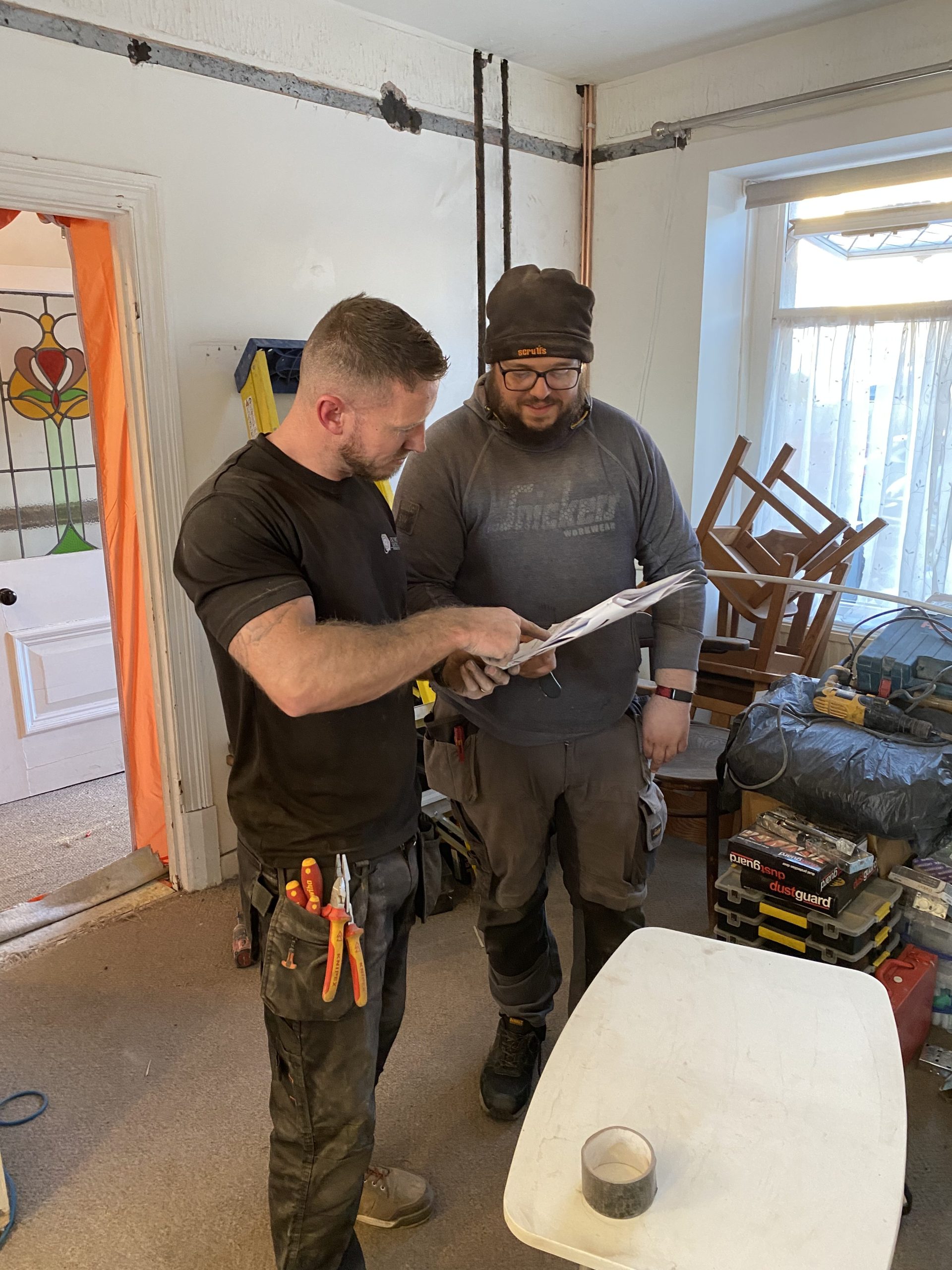
What are the advantages?
This NVQ level 3 qualification is almost entirely work based meaning that very little time is spent at the training centre or college. Candidates can generally carry on with their normal Electrical Installations roles. An ECS Gold card can be obtained after this NVQ has been completed along with the completion of the AM2E.
What are the disadvantages?
It has a very strict prerequisite and only suitable to experienced trainees that already hold experience, training, qualifications and knowledge of Electrical Installations.
How can I find out more information?
More information can be found on our website here Level 3 electrotechnical experienced worker NVQ – Electrical Courses (electricalcoursesuk.co.uk) or Installation & Maintenance Electrician – Experienced Worker Assessment – TESP (electrical-ewa.org.uk) and AM2E – NET (netservices.org.uk)
